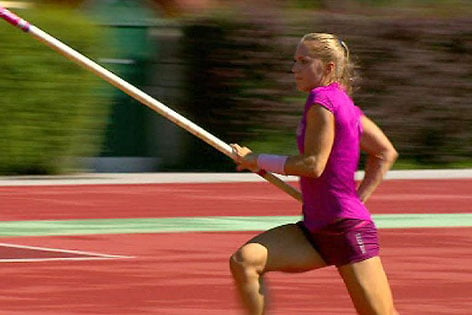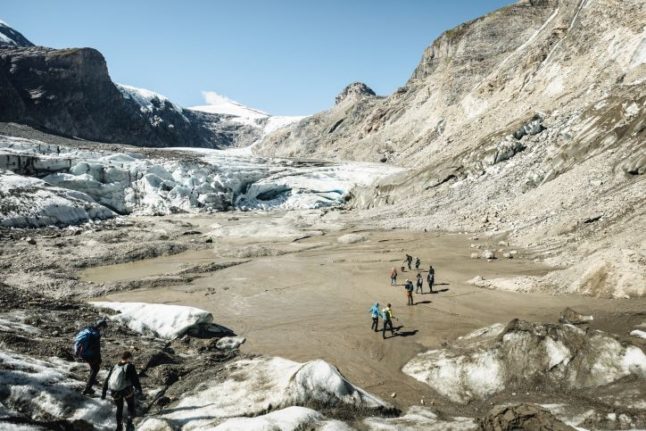21-year-old Grünberg suffered severe cervical injuries after falling and landing beside the mat on her head and neck in a practice jump.
Despite having emergency surgery, her injuries have left her a paraplegic.
Her manager, Thomas Herzog, said there was little hope that she would recover any mobility. He added that Grünberg and her family have been informed of the extent of her injuries, and that she was “mentally very clear… and very brave”.
For now, she will remain in the intensive care unit at the University Clinic in Innsbruck, where she will receive the best medical care.
A statement from the Austrian athletics federation (ÖLV) and the University Clinic revealed “a fracture of the cervical vertebrae of the spine” had been found.
The statement added: “After we had diagnosed paraplegia before the operation, the patient received emergency surgery in order to stabilize her spine and avoid further damage.”
Trained by her father in Tyrol, Grünberg finished fourth at the 2012 junior world championships before going on to set an Austrian women's record of 4.45 meters during last year's outdoor European Championships in Zurich. She repeated that feat indoors in Prague in March 2015.
The Austrian Association of Athletics Federations has announced that it is providing a €10,000 emergency fund for Grünberg, and the Tyrolean Athletics Federation has set up a donation account in her name.



 Please whitelist us to continue reading.
Please whitelist us to continue reading.